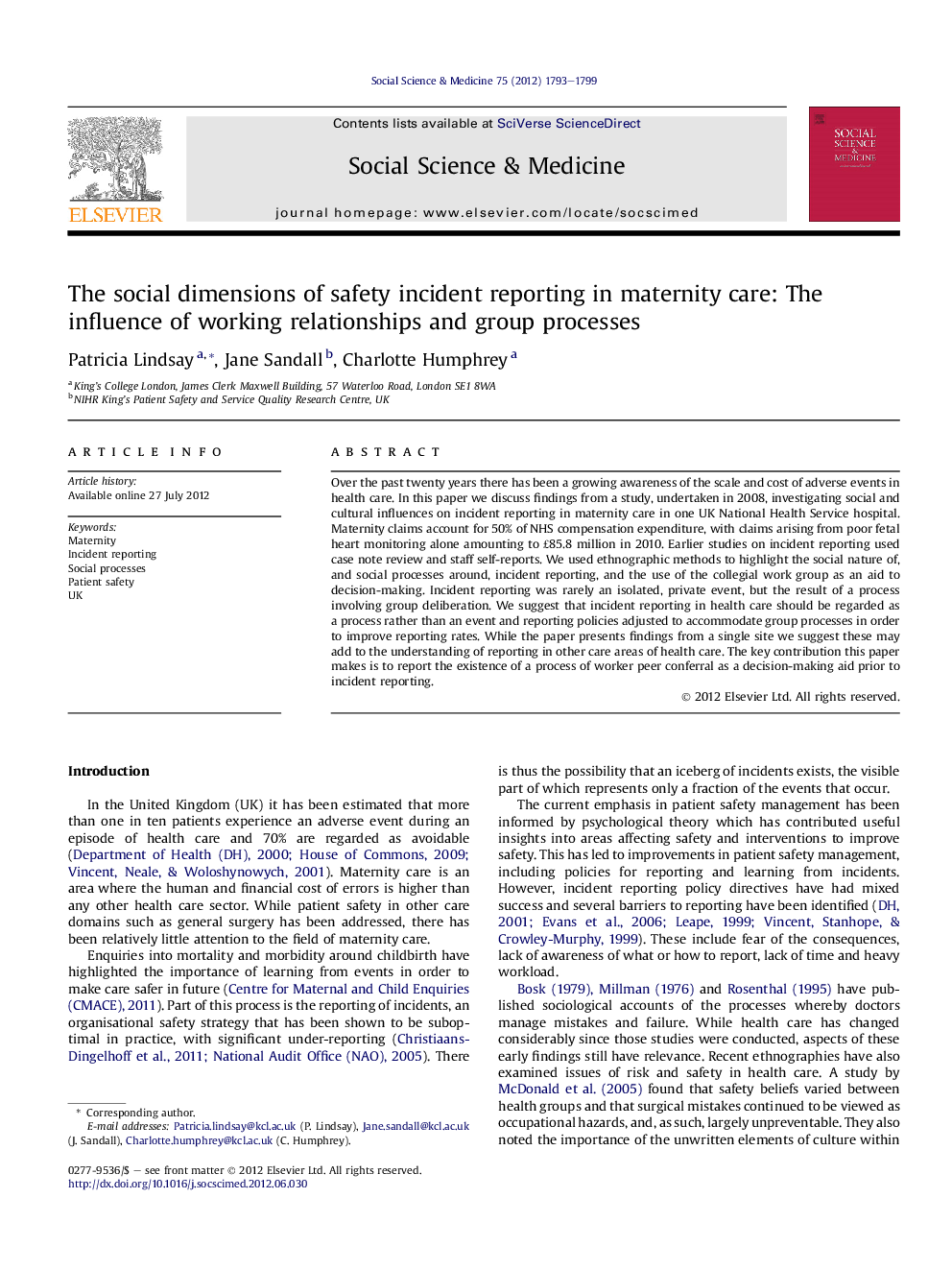| Article ID | Journal | Published Year | Pages | File Type |
|---|---|---|---|---|
| 952383 | Social Science & Medicine | 2012 | 7 Pages |
Over the past twenty years there has been a growing awareness of the scale and cost of adverse events in health care. In this paper we discuss findings from a study, undertaken in 2008, investigating social and cultural influences on incident reporting in maternity care in one UK National Health Service hospital. Maternity claims account for 50% of NHS compensation expenditure, with claims arising from poor fetal heart monitoring alone amounting to £85.8 million in 2010. Earlier studies on incident reporting used case note review and staff self-reports. We used ethnographic methods to highlight the social nature of, and social processes around, incident reporting, and the use of the collegial work group as an aid to decision-making. Incident reporting was rarely an isolated, private event, but the result of a process involving group deliberation. We suggest that incident reporting in health care should be regarded as a process rather than an event and reporting policies adjusted to accommodate group processes in order to improve reporting rates. While the paper presents findings from a single site we suggest these may add to the understanding of reporting in other care areas of health care. The key contribution this paper makes is to report the existence of a process of worker peer conferral as a decision-making aid prior to incident reporting.
► Patient safety incidents are often under-reported in maternity care. ► Social networks and worker relationships can influence reporting. ► Peer group conferral is often used as a decision-making aid prior to reporting. ► Incident reporting is often a process rather than an event. ► The study focused on maternity care in the United Kingdom but the findings are applicable to health care generally.
